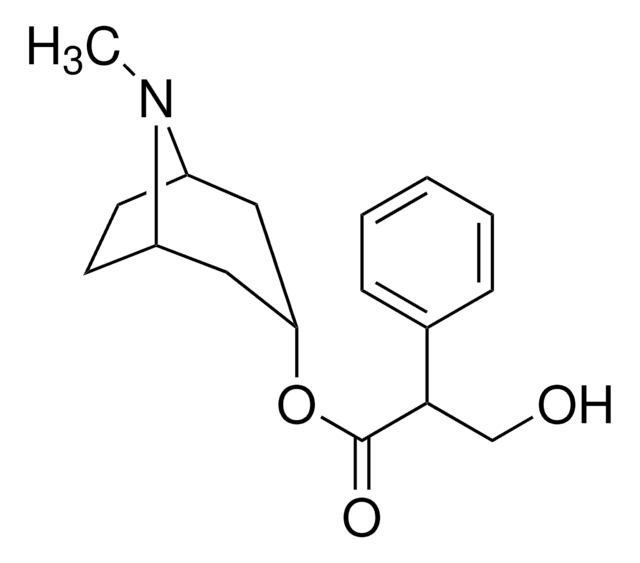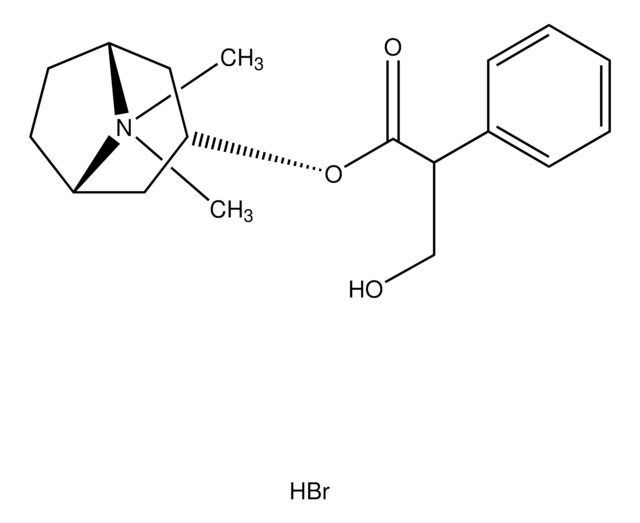A0132
Atropine
≥99% (TLC), powder
Sinónimos:
Hyoscyamine, Tropine tropate, endo-(±)-α-(Hydroxymethyl)benzeneacetic acid 8-methyl-8-azabicyclo[3.2.1]oct-3-yl ester
About This Item
Productos recomendados
assay
≥99% (TLC)
form
powder
color
white
solubility
H2O: 2 mg/mL
dilute aqueous acid: soluble
ethanol: soluble
SMILES string
CN1[C@H]2CC[C@@H]1C[C@@H](C2)OC(=O)C(CO)c3ccccc3
InChI
1S/C17H23NO3/c1-18-13-7-8-14(18)10-15(9-13)21-17(20)16(11-19)12-5-3-2-4-6-12/h2-6,13-16,19H,7-11H2,1H3/t13-,14+,15+,16?
InChI key
RKUNBYITZUJHSG-SPUOUPEWSA-N
Gene Information
human ... CHRM1(1128) , CHRM2(1129) , CHRM3(1131) , CHRM4(1132) , CHRM5(1133) , LOC730413(730413)
mouse ... Chrm1(12669)
rat ... Chrm1(25229) , Chrm2(81645) , Chrm3(24260) , Drd2(24318) , Htr1a(24473)
¿Está buscando productos similares? Visita Guía de comparación de productos
General description
Application
- as a tastant to analyse the bitter taste perception in Drosophila larvae
- as a muscarinic acetylcholine autoreceptors (mAChRs) antagonist to investigate the involvement of individual mAChR subtypes in the control of synapse elimination
- to investigate the pathways of serotonin (5-HT) action in zebrafish hearts
Biochem/physiol Actions
Features and Benefits
Reconstitution
signalword
Danger
hcodes
Hazard Classifications
Acute Tox. 2 Inhalation - Acute Tox. 2 Oral
Storage Class
6.1A - Combustible acute toxic Cat. 1 and 2 / very toxic hazardous materials
wgk_germany
WGK 3
flash_point_f
Not applicable
flash_point_c
Not applicable
ppe
Eyeshields, Faceshields, Gloves, type P3 (EN 143) respirator cartridges
Elija entre una de las versiones más recientes:
¿Ya tiene este producto?
Encuentre la documentación para los productos que ha comprado recientemente en la Biblioteca de documentos.
Nuestro equipo de científicos tiene experiencia en todas las áreas de investigación: Ciencias de la vida, Ciencia de los materiales, Síntesis química, Cromatografía, Analítica y muchas otras.
Póngase en contacto con el Servicio técnico






